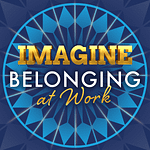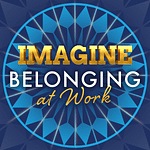Grow the #BelongingMovement by Empowering a Generation of Little Justice Leaders with Shelby Kretz
Public schools across the U.S. have served as the decisive testing ground for some of the most contentious social and political issues. Everything from mask mandates and teachings about racial justice, to the discussion of LGBTQ+ rights, and the opportunity for transgender athletes to participate in sports – these flash points have emboldened a movement demanding a return to parental rights at the expense of exposing students to different people, beliefs, and cultures that can help them unpack their own conflicting beliefs while learning in a more reasoned way.
For DEI professionals, we recognize the value of learning and connecting across our differences. When we respectfully engage with people who are different from ourselves, we have the opportunity to build real and psychologically safe relationships with them. Increasing our proximity to differences – whether these differences are because of a person’s identity, beliefs, or behaviors, we have the opportunity to grow our empathy skills and practice them real time.
Yet, if our public schools fail to teach these important skills, largely because of censoring historical events like the genocide of Indigenous People, or the transatlantic slave trade, how can younger people have the opportunity to learn about human and civil rights movements that are not included in the public school curricula?
To help us answer this question, I am honored to introduce you to Shelby Kretz, the creator of Little Justice Leaders, an organization that makes it easy to learn about social justice. Little Justice Leaders wants to make it easy for parents and caregivers to teach elementary schoolers about social justice because Shelby and her team know it can be hard to talk with young children about these topics, and they want to make it easier for you!
During this conversation, Shelby and Rhodes discuss the challenges that educators have in public school settings to teach about social justice movements and leaders. Rhodes explores Shelby’s approach to solving this challenge with some of the services her organization provides.
A few key highlights from this conversation include:
• Learning about the costs of censoring social justice topics in elementary schools and how these costs, if left unchecked, harm the development of a young person’s reasoning skills.
• Discussing the origin story of Little Justice Leaders, and why it was created to support parents, caregivers, and teachers talk with young children about social justice topics.
• Exploring how Little Justice Leaders’ learning kits are created, how learning materials are carefully selected to help guide a student’s learning on important social justice topics.
• Recognizing how the lessons help young people identify when conflicting beliefs arise, and how they might help students notice and then unpack them.
• Sharing guidance on how DEI professionals can incorporate some of the Little Justice Leader lessons into their own learning & development work.
• Discussing learning approaches that can help any learning & development professional simplify the purpose, outcome, and processes to designing effective educational experiences at work.
• Offering a vision for the future where adults have more ease and skill engaging in respectful discourse across differences, and how that will impact our sense of belonging at work.
Savor this insightful talk, and be sure to check out this gift from Shelby, the 10 Simple Tips for Talking to Little Ones About Social Justice: Ljl.education/perry.
If you’re looking for ways to connect with inspiring leaders like Shelby, be sure to check out the Belonging Membership Community – community of leaders committed to advancing their DEI goals while practicing community care. You can learn more here: www.belongingmembershipcommunity.com.












Share this post